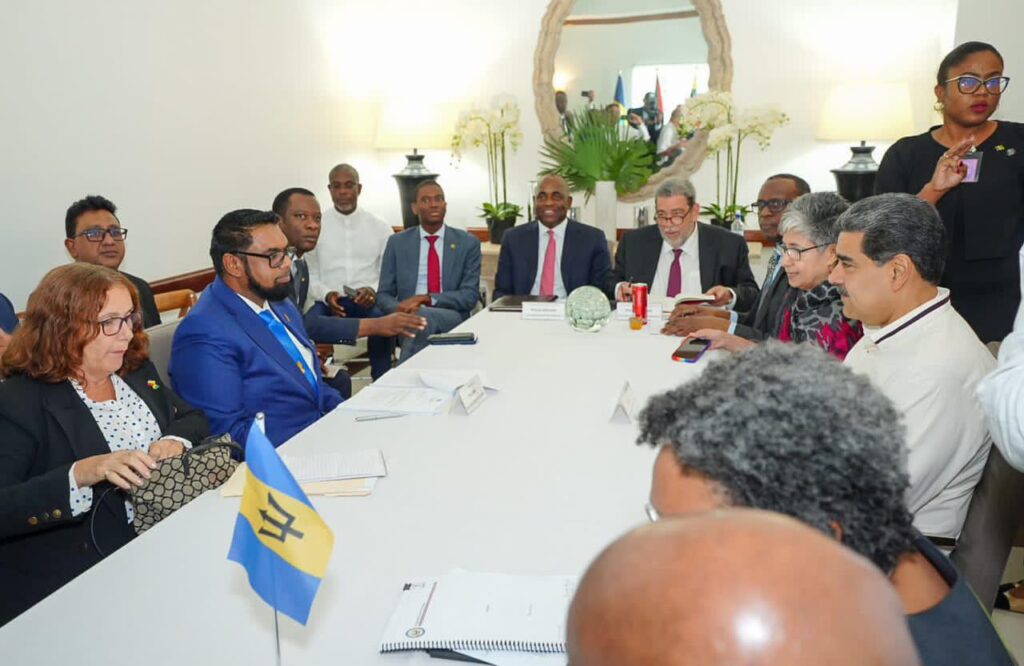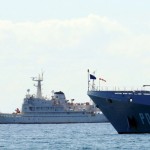
The Government of Venezuela has rejected the deployment of a British Navy vessel to the coast of Guyana, declaring that the move is an act of hostile provocation.
In a statement today, the Venezuelan Government said the deployment of the British Navy vessel to Guyana is also a violation of the Argyle Declaration, which followed the meeting between the Presidents of Guyana and Venezuela in St. Vincent.
The Venezuelan Government said the presence of the military vessel is extremely serious, since it is accompanied by statements made by political and military spokespersons who insist on meddling in the controversy, referring to British officials.
The Venezuelan Government said it is urging the Guyanese authorities to take immediate action for the withdrawal of the British Navy vessel, HMS Trent, and to refrain from continuing the involvement of military powers in the territorial controversy.
The statement from the Venezuelan Government also made reference to a recent announcement by the US Military Southern Command that it was conducting military flights over Guyana.
The British Department of Defence in confirming the deployment of the Navy vessel, said it was already in the region assisting with drug eradication exercises, but will not focus on training programmes with the Guyana military in areas of security.
Venezuela has also issued a warning to CARICOM and the Community of Latin American states group that the deployment of the British warship to Guyana’s waters is contrary to the spirit of the peace and understanding that came out of the December 14 meeting between the two Presidents in St. Vincent.
The Government of Venezuela said Venzuela reserves itself of all actions within the framework of its Constitution and International Law, to defend the maritime and territorial integrity of its homeland.
Venezuela continues to claim Guyana’s Essequibo region, which amounts to two-thirds of the country.
Guyana has repeatedly rejected the claims and in 2018 filed a case before the International Court seeking a final settlement and re-enforcing the 1899 Arbitral Award which settled the border dispute.
Tensions flared two months ago as Venezuela started a build-up of military personnel close to the border with Guyana, and held a referendum seeking to annex Guyana’s Essequibo.
With international condemnation mounting on Venezuela and the international community rejecting its claims, CARICOM and CELAC stepped in and brought the Presidents of the two countries together for a face-to-face meeting in St. Vincent.

Following the discussions between the two Presidents, the Argyle Declaration was issued, which states that that the two neighbouring countries will not threaten or use force against one another in any circumstances, including those that are consequential to any existing controversy between the two.
The two sides also agreed to establish a Joint Commission of Foreign Ministers and technical persons from the two countries to address matters as mutually agreed.
In their Joint Declaration, Guyana and Venezuela agreed to continue dialogue on other pending matters.
They also agreed to refrain from escalating any conflict or disagreement.
Guyana and Venezuela have also declared that they will meet again in Brazil within the next three months or at a time agreed to by them.
The Declaration also noted Guyana’s position that the border case is properly before the International Court of Justice and that is where it will remain for a final settlement, while the Declaration also noted Venezuela’s rejection of the Court to adjudicate the matter.













You must be logged in to post a comment Login